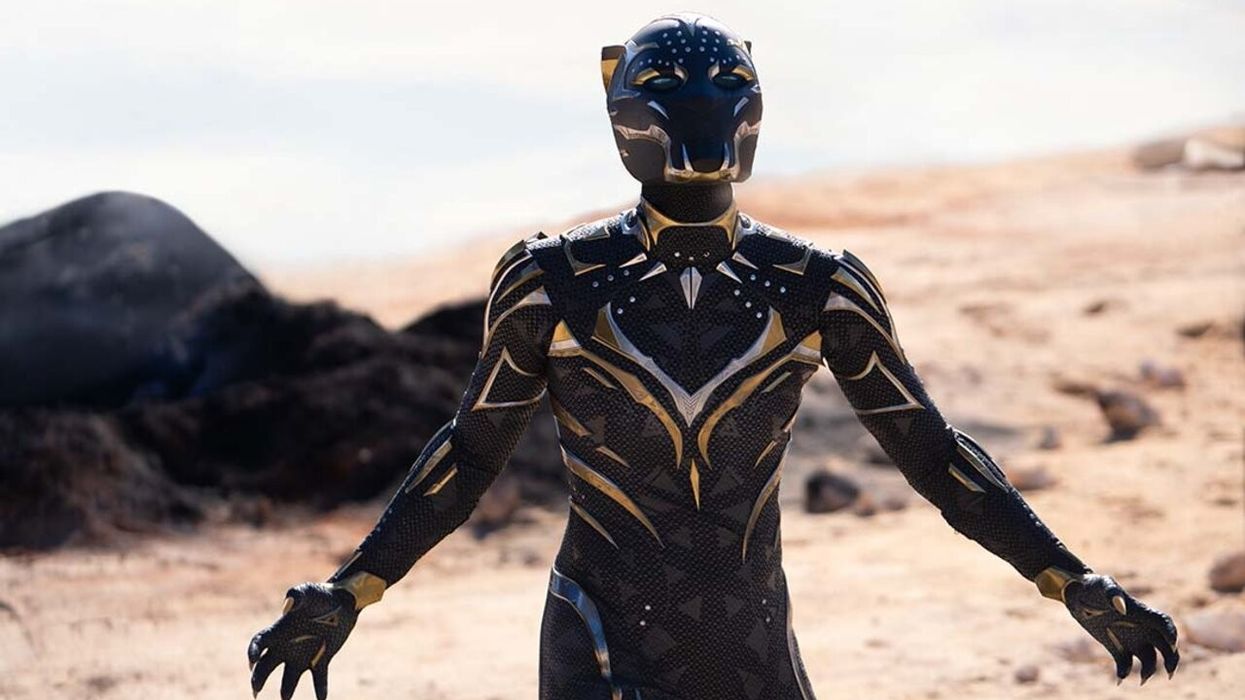From Indies to Blockbusters, This Editor Shares What Stays Constant in Every Edit
Editor Alain Fleury talks with No Film School about his career as an editor working on indie films to massive blockbuster hits.

'Black Panther: Wakanda Forever'
In the captivating realm of cinematic artistry, few individuals possess the remarkable ability to weave together visual narratives with unparalleled precision and creativity. Editor Alain Fleury, however, has become an acclaimed editor for blockbuster action movie epics and slower, more emotional indie films.
Fleury's recent triumphs include his pivotal role as the assistant editor for the cinematic sensation, Black Panther: Wakanda Forever. The film's resounding success, garnering five prestigious Oscar nominations and an impressive array of more than 151 other awards, attests to Alain's unparalleled talent and dedication. Fleury also worked as the second assistant editor on Transformers: The Rise of the Beasts, where majestic machines and mesmerizing storytelling collide. Working alongside esteemed talents like Michelle Yeoh and Ron Perlman, his prowess contributes to shaping yet another cinematic spectacle set to captivate audiences worldwide.
However, Alain's brilliance extends far beyond the realm of blockbuster extravaganzas. His mark can be traced through the intricate lattices of independent cinema, with projects like Rear and the critically acclaimed Social Disturbance. Alain's passion for storytelling was kindled in the rich tapestry of his Haitian-American upbringing, driving him to pursue his craft and empower emerging talents.
No Film School chatted with Alain Fleury via email about his work on Black Panther: Wakanda Forever and Transformers: Rise of the Beast, how he overcomes constant challenges in the editing bay, and his advice for editors like you.

Editor Alain Fleury working on 'Black Panther: Wakanda Forever'
Photos courtesy of Alain Fleury
No Film School: How did you get started as an editor?
Alain Fleury: For as long as I can remember, I always wanted to be a filmmaker. I first started as a director, then I thought, "What would make me a better storyteller?" To me, that was understanding what I needed in the editing room. So, I picked up editing and fell in love with the art.
NFS: What was it about these projects, Black Panther: Wakanda Forever and Transformers: Rise of the Beast, the excited you to join them?
Fleury: Some of my core memories as a child were going to the movies during the summer and experiencing these tent pole films. Summer blockbusters were exciting to me and offered escapism from some of the harsher parts of life. I wanted to be a part of that magic and bring joy to the masses.
NFS: What was one of the challenges you faced on each project? How did you overcome them?
Fleury: One of the most challenging parts for me as a Black man in this industry was finding my way into these rooms that don't typically give us a seat at the table. I started taking control of my story and wrote my own path. It's important to network with the right people.

Editor Alian Fleury working on 'Transformers: Rise of the Beast'
Photos courtesy of Alain Fleury
NFS: In terms of advancing your projects from its earliest assembly to your final cut, what were y our goals as an editor.
Fleury: As an editor, my goal is to find the emotional core of every scene and figure out how it fits into the bigger picture. This serves the bigger picture goals of engaging the audience and striking an emotional response from them--whether it be laugh, a tear, or leaving them with a different perspective than they arrived with.
NFS: How did you achieve these goals? What types of editing techniques, processes, or feedback screening allowed this work to occur?
Fleury: After I've assembled a scene from beginning to end, I watch it back with no sound or music--just picture. Once I can understand the primary intention behind every cut without hearing a single word, I know that it's ready.
NFS: What editing software did you use? Why?
Fleury: I use Avid as my primary editing software because it is robust and provides a lot of tools for a collaborative process. I do believe that, as an editor, you should be software agnostic. Once you understand the basics of editing and what you are trying to achieve, you can adapt to any software.

Editor Alian Fleury working on 'Transformers: Rise of the Beast'
Photos courtesy of Alain Fleury
NFS: What influences have affected your work?
Fleury: Music has always influenced my work. Sometimes when I'm trying to figure out a cut, I step away and listen to film scores to get inspiration.
NFS: Do you have any advice for young editors?
Fleury: Remember to every "no" you receive is just an acronym for "next opportunity." Stay prepared by working on your craft a little bit every day and what is yours will be yours.
Coming up, Fleury is editing the indie short film Vigilanteand the upcoming feature film, Restaveks. He also edited the short film Rear which has won five awards for Best Short at the Manhattan Film Festival and The Art of Brooklyn Film Festival to name a few.











